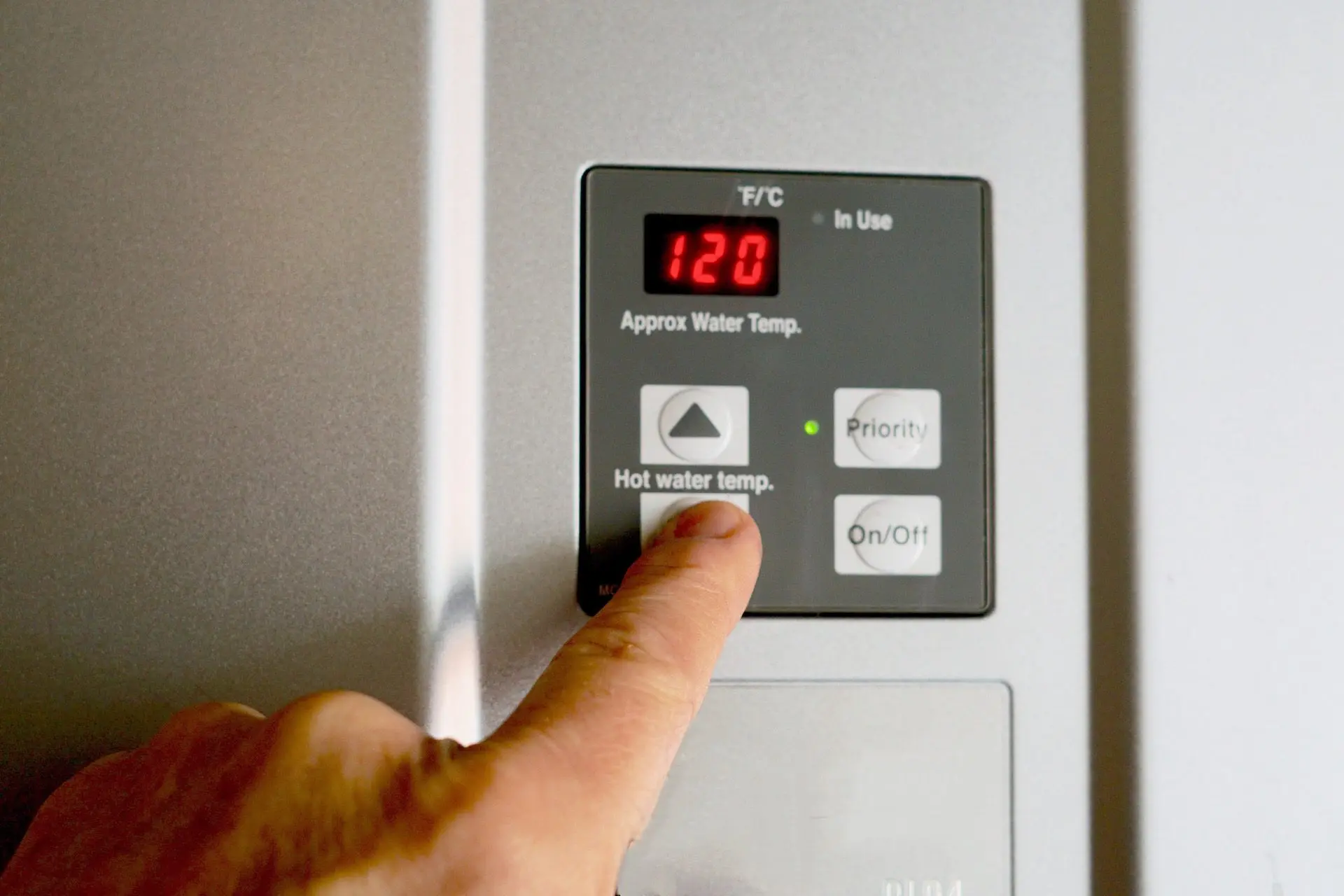With the average American using between 50 to 100 gallons of hot water daily, it’s no surprise that running out of hot water is more than just inconvenient—it disrupts your entire routine. While you may manage cold water for chores like dishes or laundry, nobody wants to face a cold shower unexpectedly.
If you’re finding that your water heater isn’t providing hot water as reliably as it should, it’s time to investigate the situation. Could your water heater be on its last leg? Ask yourself the following questions, and based on your answers, you may need to consider a water heater replacement. When in doubt, Green Group is here to help with water heater repairs and replacements in Nashville, Franklin, and Murfreesboro.
1. Is Your Hot Water Inconsistent or in Short Supply?
If the answer is yes, call a plumber.
There’s nothing worse than enjoying a hot shower only to be greeted by an icy blast midway through. If your water goes cold frequently or you’re consistently running out of hot water, your water heater might not be functioning correctly. This could indicate a failing heating element, or the tank may be too small for the size of your household. It’s also possible your water heater has simply reached the end of its lifespan.
If you notice these issues, don’t wait—contact Green Group for water heater repairs in Nashville, Franklin, and Murfreesboro. We’ll diagnose the problem and recommend the best course of action.
2. Are Strange Noises Coming from Your Water Heater?
If the answer is yes, drain the tank or call a plumber.
Hearing strange, explosion-like noises from your water heater might be alarming, but don’t panic just yet. Those banging or popping sounds often come from sediment buildup in the tank. Over time, sediment accumulates at the bottom and reacts with the heating element, causing mini-explosions.
The fix? A simple tank drain to flush out the sediment. This process can be done on your own if you’re familiar with traditional hot water heater maintenance. However, if it sounds like more trouble than it’s worth, call Green Group to handle the task for you.
3. Does the Water Heater Show Signs of a Leak?
If the answer is yes, depending on the source, contact a plumber.
Water heater leaks can vary in severity, so it’s important to locate the source of the leak before jumping to conclusions. In some cases, loose valves or inlet/outlet connections might be the culprit, and these can often be tightened for a quick fix.
However, if the leak originates from the tank itself—especially at the base or from visible cracks—it’s a sign of more serious damage. This could indicate that your water heater is aging and needs to be replaced. When leaks become too severe to repair, reach out to Green Group for professional [water heater repairs](https://greengrouptn.com/) or replacement services.
4. Are Your Water and Energy Bills Consistently High?
If the answer is yes, consider upgrading to a tankless water heater.
Nobody enjoys hefty energy bills, and if your bills remain high even in milder seasons like spring or fall, your water heater could be the cause. A malfunctioning water heater may consume excessive energy, driving up your utility bills. Coupled with inconsistent water temperature and a short supply of hot water, these are clear signs that something is wrong.
If you’re looking to boost efficiency, tankless water heaters are a smart investment. Tankless systems don’t experience the same wear and tear as traditional heaters, they last twice as long, and they can be up to 34% more energy-efficient. Over time, the initial investment in a tankless water heater pays off with energy savings and a more reliable hot water supply.
Whether you’re dealing with minor water heater issues or suspect it’s time for a full replacement, don’t wait until the problem gets worse. Green Group offers professional water heater services, from repairs to tankless system installations, in Nashville, Franklin, Murfreesboro, and the surrounding areas.
We’ll help you determine the most cost-effective solution for your household’s hot water needs. Reach out to us today to schedule an inspection and ensure your water heater is ready to keep up with your daily demands.

